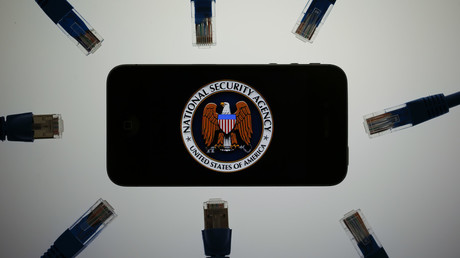Russia’s own internet? Legislators plan to protect the country's web from foreign interference

Russian lawmakers have introduced legislation designed to reduce the country's internet resources’ dependence on foreign infrastructure. The bill also envisions emergency measures in case the nation gets cut off the worldwide web.
The legislation, submitted to the State Duma on Tuesday, has been drafted in the wake of the “aggressive nature of US cyber security strategy adopted in September 2018.” The strategy outlines Washington’s desire to maintain dominance in defining, shaping and policing cyberspace, as well as to achieve “peace through strength,” countering “malicious actors” like Russia and China.
The main goal of Moscow, according to the proposed legislation, is to significantly decrease dependence of the Russian internet sector on foreign infrastructure. The document envisions setting up national groundwork to keep Russia’s internet functional, even if servers abroad become unavailable for any reason. This includes the creation of an entirely new system of national domain names, one of the legislation’s sponsors, Duma deputy Andrey Lugovoy, explained.
“We're not creating our own internet. We're just setting up a backup infrastructure. We’re duplicating it locally, so that our citizens would have access to the internet in case of any emergency,” Lugovoy told RIA Novosti.
As well as this, Russian cyberspace may also come under the centralized governance of the country’s media watchdog Roscomnadzor, well-known for its activities related to blocking rogue actors that feature outlawed content. The measure is expected to be triggered only in case of “the emergence of a threat to the integrity, stability and safety of the internet functioning in Russia,”according to the proposed legislation.
To actually make the “centralized governance” work, the legislation proposes to oblige internet providers to set up equipment that can detect the source of any internet traffic.
The bill has been already welcomed by Russia’s Ministry of Сommunications. Given the scope of the idea, however, it’s quite hard to predict when it would become effective, if the legislation is adopted.
“The task is global,” deputy Minister of communications Oleg Ivanov said. “It definitely cannot be done within a year, it would take several. We need to look into it in detail, when such a system is engineered. Then we can talk about a realistic timeframe.”


0 Comments:
Post a Comment
Subscribe to Post Comments [Atom]
<< Home